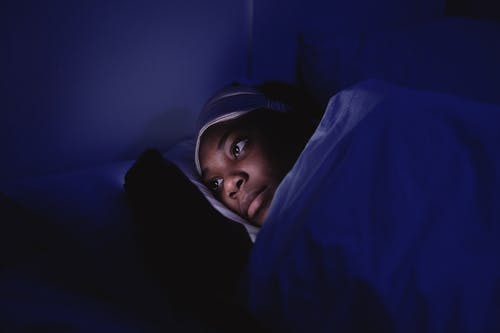Easy Ways to Treat Insomnia Without Medication
Feeling tired? Struggling with sleep? You’re not alone. According to the CDC, around 35% of American adults aren’t getting enough sleep.
Feeling tired? Struggling with sleep? You’re not alone. According to the CDC, around 35% of American adults aren’t getting enough sleep.
Sleep is key to keeping the brain functioning at its best. If you’re not getting enough sleep—then it may be a sign of insomnia.
Insomnia is no joke, so it’s important to know effective insomnia remedies to keep yourself healthy. Read on to learn how to treat insomnia without medication.
What Exactly is Insomnia?
It’s important to know what insomnia is on a deeper level before you can tackle it.
According to scientists, insomnia is a common sleep disorder that can cause difficulties sleeping or staying asleep. Not getting enough sleep can be bad for your health, your productivity, and your happiness.
Insomnia can affect adolescents, adults, and the elderly. It’s not uncommon for someone to suffer from insomnia at least once in their life. About one-third of adults are experiencing insomnia symptoms at any given time.

People need about 7-9 hours of sleep. If you aren’t regularly getting enough sleep, then you might experience these symptoms:
- General fatigue. You’ll feel a dreadful lack of energy or the inability to comfortably do tasks you used easily do.
- Weight gain. Insomnia can cause severe weight gain. If that wasn’t enough, it also makes diet and exercise less effective.
- Weaker immune system. Your body needs to rest. If you’re not getting enough sleep, then your body can’t focus on essential tasks like maintaining your immune system.
- Elevated blood pressure.
- Increased risk of diabetes and heart disease.
- Depression or anxiety. However, insomnia may be a symptom itself of depression or anxiety.
- Reduced focus. People who suffer from insomnia often report a decreased performance at school or work.
- Decreased motor function. This makes it dangerous to operate machinery or drive.
Insomnia is horrible, but there are many ways to take care of the problem!
While medication can be helpful, recent studies suggest that sleeping pills are very temporary fixes to insomnia. There are plenty of solutions to insomnia that don’t require medication.
There are actually three different types of insomnia, ranging in severity.
Acute insomnia is short-term and usually doesn’t happen twice. Transient insomnia might last a few days or even a week. Chronic insomnia is a serious problem. Chronic insomnia is defined as having trouble with sleep at least 3 times a week for at least a month.\
Practice Better Sleeping Habits
It’s the little things that matter. Seemingly small sleeping habits can really make or break your entire night.

\ Let’s go over some helpful habits that should help your sleep:
- Turn off electronics before bed. The light on your screens has actually been proven to keep you awake and mess with your sleep. It’s best to turn off all electronics at least an hour or two before bed.
- Stick to a routine. While your electronics are off, it’s good to start your nightly routine. Your routine could be something like taking a shower, changing into your PJs, and reading a book before you feel drowsy enough to close your eyes and sleep.
- Limit caffeine after noon. It’s completely fine to have some coffee when you wake up, but don’t take it too far. Too much caffeine can keep you up late at night and disturb your sleep.
- No heavy eating before bed. Eating a big meal might sound like a good idea for the following food coma, but it won’t help you get good sleep. Avoid eating meals for at least three hours before bedtime. If you’re hungry, go ahead and eat a light snack.
- Don’t spend your free time in bed. Your bed might be your comfort place, but you shouldn’t spend your free time laying in bed. Why? You could be telling your brain that your bed isn’t for sleep, it’s for spending free time in the middle of the day. This could lead to your brain not wanting to let you sleep when it’s actually bedtime.
- Wash your sheets every 1-2 weeks.
Good sleep habits build good sleep patterns. Insomnia isn’t just sleeping enough, though—it’s also getting high-quality sleep.
Improve Sleep Quality
Getting high-quality sleep can be hard. Poor-quality sleep could contribute to your insomnia problems.
Let’s go over some insomnia remedies to improve sleep quality:\
- Darken your room. Close the blinds, shut the door, turn off all the lights, and cover your eyes if necessary.
- Keep your room between 65 and 70 degrees. This is the optimal temperature for getting good sleep.
- Drink plenty of water before bed. Waking up in the middle of the night for a drink of water interrupts your sleep.
- Invest in a good, comfy blanket. Being wrapped in the right blanket could really improve your sleep quality.
Need Help Sleeping Better and Beating Insomnia Without Medication?
If you need help getting better sleep and treating insomnia, then look into getting a heated blanket.
Heated blankets have been proven to help people get more comfortable and effective sleep. Click here to take a look at some great heated blankets.
If your insomnia persists, then it may be a symptom itself of depression, anxiety, or some other illness. Let your doctor know about your sleeping problems if these remedies don’t work.

